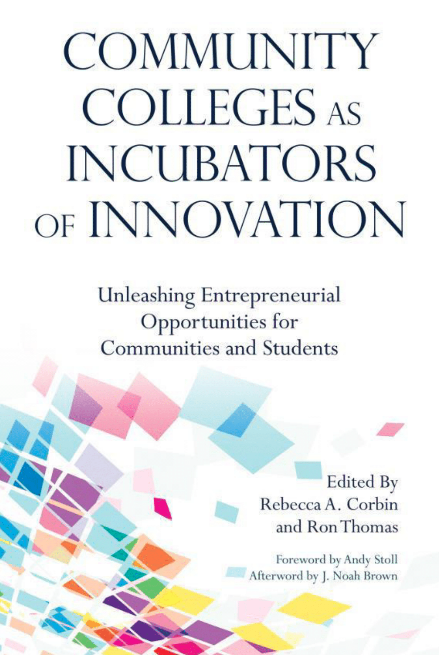The Gig Economy and How Entrepreneurship Can Help
Public opinion of the need for a college credential in the workforce tends to increase during economic downturns, only to decrease during times of economic advancement (Immerwahr, multiple studies). This instability in opinion offers one insight: individual perceptions can change, and in more and more cases, they need to. For instance, a shade tree mechanic will not be as viable as he or she may have been in the past; advancements in automobiles require more advanced knowledge and the ability to operate sophisticated equipment, much of which requires education and training. On a broader scale, the coming Fourth Industrial Revolution is creating opportunities in fields such as advanced robotics, artificial intelligence, autonomous transport, machine learning, and genomics (Schwab, 2016). Additionally, the gig economy is transforming the American workforce, with a growing majority of organizations indicating they will use contingent workers by 2020 (Ernst & Young, n.d.).
Here are several statistics demonstrating the impact of the gig economy:
- 86 percent of professional freelancers choose freelancing (The 2016 Field Nation Freelancer Study).
- 35 percent of the U.S. workforce — 55 million people — freelanced in 2016 (Freelancing In America, 2016, UpWork/Freelancers Union.
- Update: 36 percent of the U.S. workforce - 57.3 million people – freelanced in 2017 (Freelancing in America, 2016).
- 8 percent of full-time independents earn more than $100,000 (MBO Partners State of Independence In America 2017).
- By 2027, more than half of American workers — 58 percent — will have had some experience as independent contractors (MBO Partners Looking Forward: What Will the Independent Workforce Look Like In 2027?).
- 20 percent of organizations globally with more than 1,000 employees have a workforce that is made up of 30 percent or more contingent workers (Global Contingent Workforce Study, EY).
- 6 million Americans will be working in the on-demand economy regularly by 2020 (Intuit Investor Forecast).
- 94 percent of workers are open to non-traditional forms of work. (Gig Responsibly: The Rise of NextGen Work (Manpower Group).
- 20 to 30 percent of the working-age population in the United States and the European Union engage in independent work (Independent work: Choice, Necessity, and the Gig Economy, McKinsey Global Institute, 2016).
Community colleges are perfectly poised to provide entrepreneurship training to these freelance and contingent workers, and thus will play a leadership role in aligning community ecosystems to leverage this emerging workforce. The American Association for Community Colleges (AACC) described the gig movement, highlighting several community colleges that are successfully preparing students for the gig economy (Guth, 2016). In one case, a student created a tech startup, Vitris Wireless, to help people find solutions to frustrating technology problems with an easy-to-use app. The student acknowledged that Bucks County Community College (BCCC) in Newtown, Pennsylvania, helped him learn the money management and organizational skills that are crucial for entrepreneurs to thrive in the gig economy.
Makerspaces and fab labs have come to play a critical role by providing equipment and opportunities to collaborate. At Northampton Community College (NCC) in Bethlehem Township, Pennsylvania, Jeff Boerner, an entrepreneur with a passion for tinkering, created a fab lab, acquiring unused space and donated equipment. In exchange for use of the equipment, fab lab users were required to teach a course to others. Boerner leveraged local assets, including nearby Nazareth, Pennsylvania, home of Martin Guitar. The result: a signature guitar-making course at NCC and the perfect complement for a musician’s gig lifestyle.
There is growing research that ties many of the characteristics of student success in the workplace to the characteristics of entrepreneurial behavior. Students who can take advantage of situations, who learn to market themselves, and who are willing to take risks, become successful in school as well as at work. Preparation of college students to enter the gig economy is imperative if student success is measured not only by degree attainment, but also by financial security in life.
To learn more, order NACCE’s new book, Community Colleges as Incubators of Innovation to read Christopher Mullin and Doan Winkel’s chapter on “Entrepreneurship and Workforce Development: Makings of a New Synthesis.”
To order, click here.

Christopher Mullin has served as the director of Strong Start to Finish, executive vice chancellor of the Florida College System, assistant vice chancellor for Policy and Research at the State University System of Florida, and program director for Policy Analysis of the American Association of Community Colleges (AACC) in Washington, DC.
Follow Christopher on Twitter.
Doan Winkel is the John J. Kahl, Sr. Chair in Entrepreneurship and director of The Edward M. Muldoon Center for Entrepreneurship at John Carroll University. He is the founder and director of the Entrepreneurship Education Project, which gathers data from nearly 20,000 college students from 400+ universities across 70+ countries to better understand how to teach entrepreneurship.
Follow Doan on Twitter.
